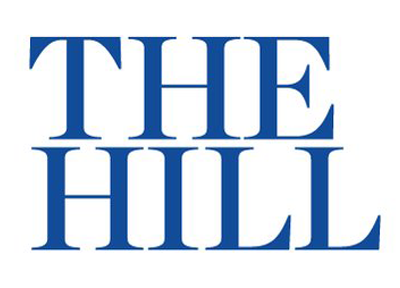

What are 'religious liberty' bills really about?
By Peter Lindsay, opinion contributor –
03/29/17 04:30 PM EDT
In the wake of numerous "religious liberty" initiatives, this classic question of American politics has been getting increased attention. In addition to a number of "First Amendment Defense" bills running through state legislatures, Republican Sens. Ted Cruz (Texas) and Mike Lee (Utah) have reintroduced a federal bill that Lee initially sponsored back in 2015. President Trump is also said to be considering an executive order entitled "Establishing a Government-Wide Initiative to Respect Religious Freedom."
The desired effect of all these initiatives is to allow business owners and employers the right to refuse services to LGBT people. To offer the most commonly employed example, a baker who, out of religious conviction, wishes not to bake a gay couple their wedding cake would be within his rights to do so.
So — to return to the initial question — is this what it means to exercise your religion? My short answer is "no." Far from promoting religious freedom, these initiatives misconstrue what that freedom is all about.
Let me explain.
At the heart of the issue lies the matter of discrimination. And here we need to be clear: people are certainly within their rights — in certain contexts — to discriminate on religious grounds.
Consider the homeowner who wishes to deny someone passage through her front door. While this action may be a form of discrimination, it is, on most accounts, an acceptable one. Even where the discrimination is on grounds that decent people abhor (race, say), it seems ethically right to allow homeowners this ethical wrong.
And it isn't just homeowners whose discriminatory choices we wish to allow. Go back to the baker, but this time with a different patron, one requesting a cake adorned with a swastika.
Now, what do we think? Would it be wrong for him to discriminate in this case?
I don't think so. In fact, in this case, discrimination seems like the correct response. It is certainly a form of expression that we would want to allow to those (Jews, gays) for whom swastikas are an especial affront.
So the challenge for critics of religious freedom bills is to explain why we do tolerate the bigoted homeowner and the anti-Nazi baker, but not the anti-gay baker.
In what ethically relevant sense does the anti-gay baker differ from the other two?
Let's start with the homeowner. The obvious thing to see here is that homes are private spaces — spaces where people may do as they wish because their actions for the most part have very little effect on others.
Bakeries, on the other hand, operate within markets, and markets are public creations in a way that homes are not. Try having a market without roads or courts or currencies or prisons or schools, not to mention a military. Better yet, try having one without laws. (Russia has tried it. It didn't go well.)
So who pays for the roads and the courts and the currencies that markets require? We do, and that makes us — in a democracy at least — in some way complicit in the shape those markets take. The rules on which they operate are our rules.
In short, bakeries may not be post offices and courts in their public-ness, but they are quite a bit more public than are our homes. As such, allowing for discrimination is not about leaving individuals alone to act as they like (as we do homeowners). It is about our condoning and supporting those actions with our tax dollars.
And this brings us to the anti-Nazi baker. If we are complicit in the way that businesses act, then it falls upon us all to decide what we want to be complicit in. It falls upon us, in other words, to make distinctions between business practices that we as a society condone and those that we do not.
The difference between the two bakers, then, is simple: One is discriminating in a way that most of us would financially support, while the other is doing so on the basis of views held by a vocal, yet increasingly unrepresentative minority — views that the rest of us should not have to fund.
To all of this, one might response: "But you can't equate my Biblically-inspired disdain for homosexuality with Nazi-inspired racism!"
Perhaps, although any distinctions we wish to make between the two may be irrelevant as soon as we consider what it actually — concretely — means to "exercise your religion."
What, in other words, does it mean for people not just to follow their religious convictions, but to act upon them?
The assumption of religious liberty bills is that being able to discriminate against others is at least part of what it means.
While this assumption no doubt holds for some people, my sense is that for many others — even many who interpret scripture to mean homosexuality is a sin — discrimination is emphatically not what the Almighty commands.
To the contrary, the scripture that seems to apply in this case is summed up in Proverbs 25:21 (as well as Romans 12:20 and Matthew 5:44): "If your enemy is hungry, give him food to eat; and if he is thirsty, give him water to drink."
If anything captures what it means to exercise your religion, it is surely this.
Peter Lindsay is an associate professor of political science and philosophy at Georgia State University and a member of the Scholars Strategy Network.
Dowmload







